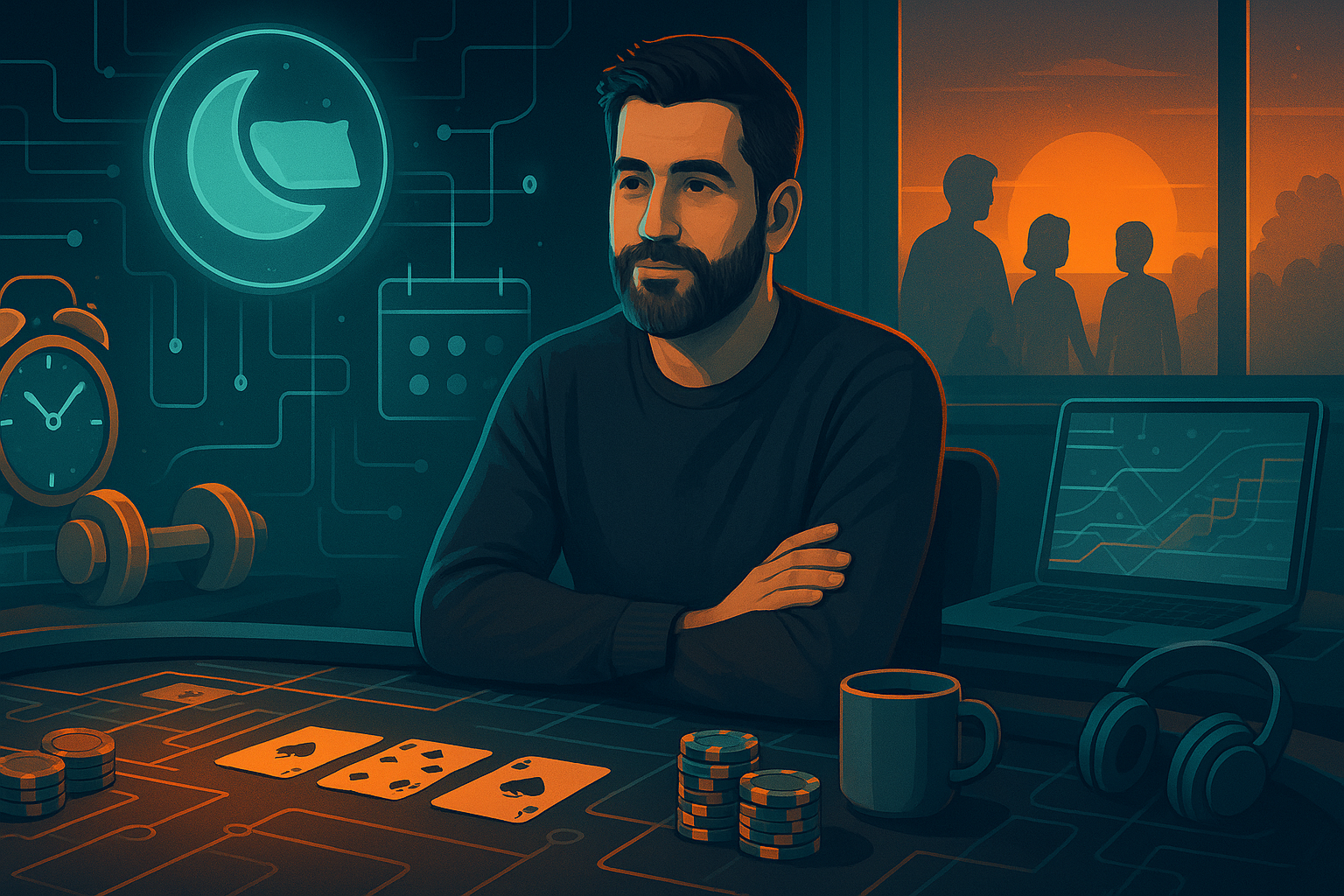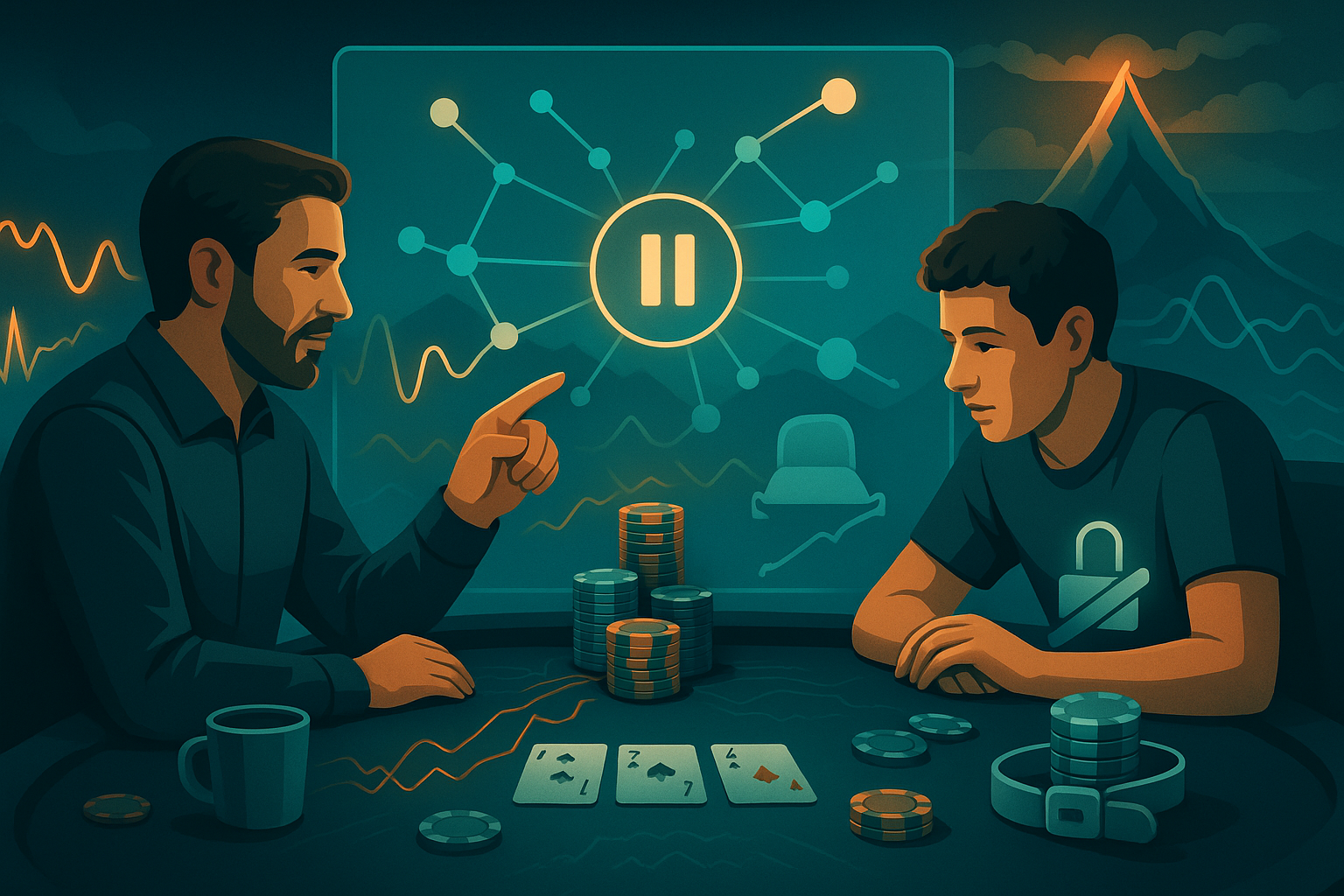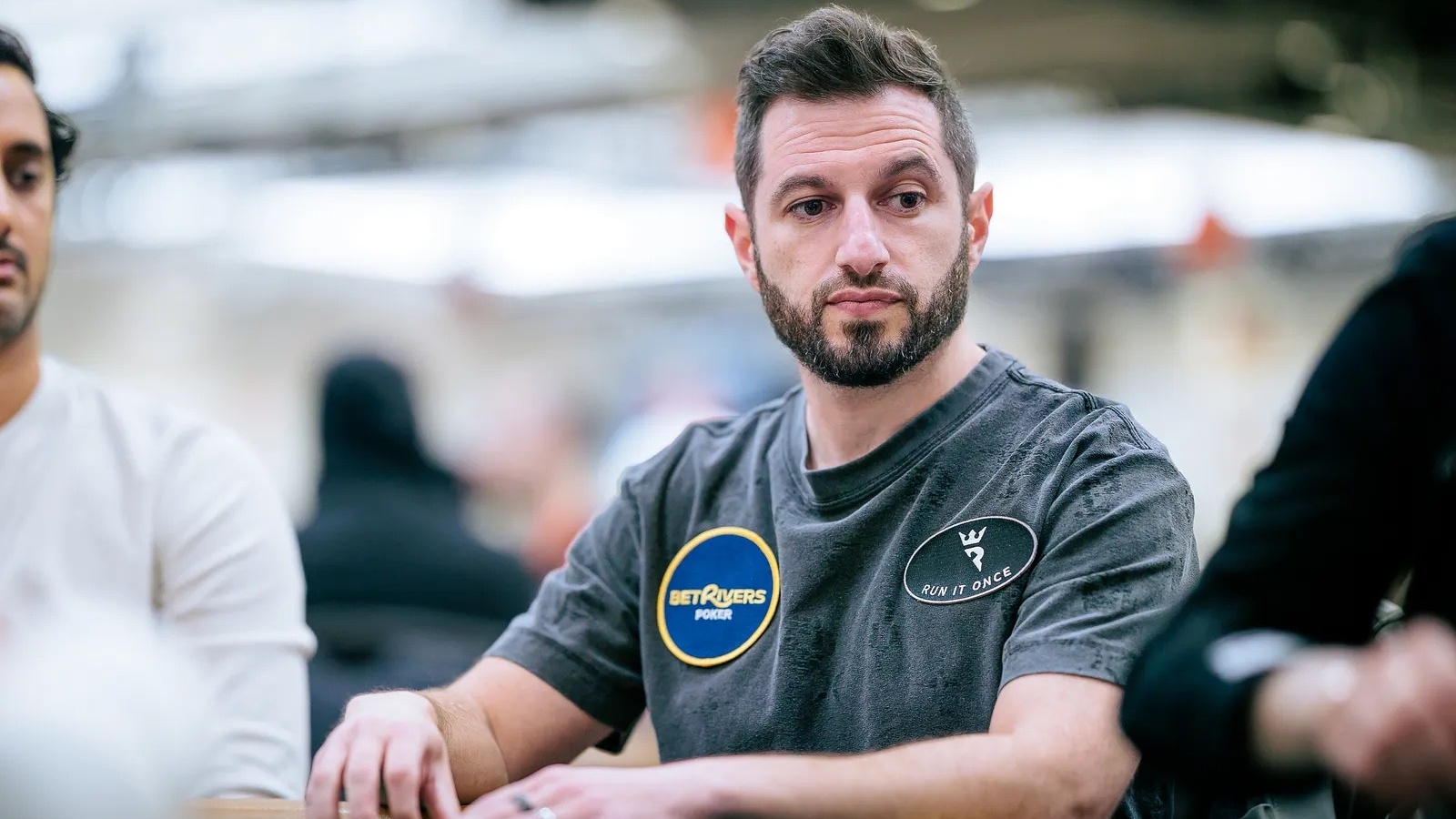In an interview with the coaching platform Race to 10, Phil Galfond discussed his evolution from a “video game grinder” through tough losses in high-stakes live cash games, to his current role as a mentor and entrepreneur. His goal: to help players build a bankroll and mindset that can withstand the harshest swings. Galfond focuses on what most coaching videos and YouTube strategies overlook — the mental toolkit, personal discipline, and the ability to connect the poker world with real-life, family, and work.
Sleep as the Foundation of Performance
The basis of his day doesn’t revolve around solver reports; it's routine. Phil wakes up at six, heads straight to the office, takes breaks for meals or exercise, and returns home by five. Two days are dedicated solely to calls, another two to deep work without interruptions, while Wednesday and Saturday are half work, half family. This schedule allows him not only to manage business and coaching but also maintain quality time with his wife and son. It sounds like a tech manager's plan, but it's truly the best way to stay effective because, as he says, limited time breeds efficiency. And with that comes a fundamental insight: sleep is the foundation of performance — whether at the poker table or in business decisions.

Galfond also discusses players who play poker part-time alongside work or family. He claims that their biggest hurdle is often not a lack of time but internal tension. Many play with guilt, feeling that their presence at the table is hurting someone, leading to poor decisions even before the cards are dealt. The solution is a clear agreement with partners or loved ones —when you have a dedicated time for play, you approach the game with a clear mind and don't have to fight every loss with your conscience. For Galfond, morning energy is crucial, and he advises part-time players to play earlier in the day, if game availability allows.
Asking the Right Questions
He also reflected on study habits. Unlike many coaches who stress study as a foundation for growth, Galfond points out that if someone truly hates studying, they should replace it with playing and collaborating with others. He believes the greatest career leaps come from conversations — not necessarily with better players, but those who ask the right questions and are eager to improve. He personally grew the most alongside players on lower stakes who had a strong analytical mindset. The point is simple: don’t seek geniuses, but people willing to dive deep with you.
Galfond shared several specific “mindset hacks” recommended for everyone, regardless of level. Take a break every hour, walk away after losing a big pot, and before returning to the game, ask yourself specific questions about your mental state. These “safety belts” can protect you from being carried away by frustration or ego. He also emphasizes the value of perspective—losing seven buy-ins doesn’t mean you’re off course; you're exactly where you should be when you look at your path over five years. It’s just one wave in a long journey.

Prefer to Stay Grounded
The discussion touched on whether striving for higher stakes solely for better hourly rates is worthwhile. Galfond warns that higher stakes mean greater swings and more stress. If you're not ready to handle this volatility, your theoretical EV might turn into a practical disaster. Therefore, he advises recreational players to maintain calm in smaller games with lower variance and higher certainty because EV isn't just about numbers but also mental well-being.
The interview concluded on an optimistic note. According to Galfond, poker is not in decline — quite the opposite. Thanks to YouTube, vlogs, and social media formats, poker is reaching new audiences, especially in live formats. This means more players, more action, and more opportunities for anyone ready for the long haul. As he himself says, the biggest mistake is believing that we lose because we're unlucky. We lose only when we decide to keep losing.




